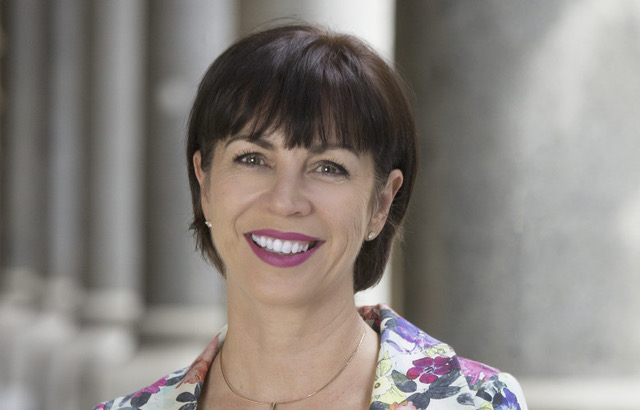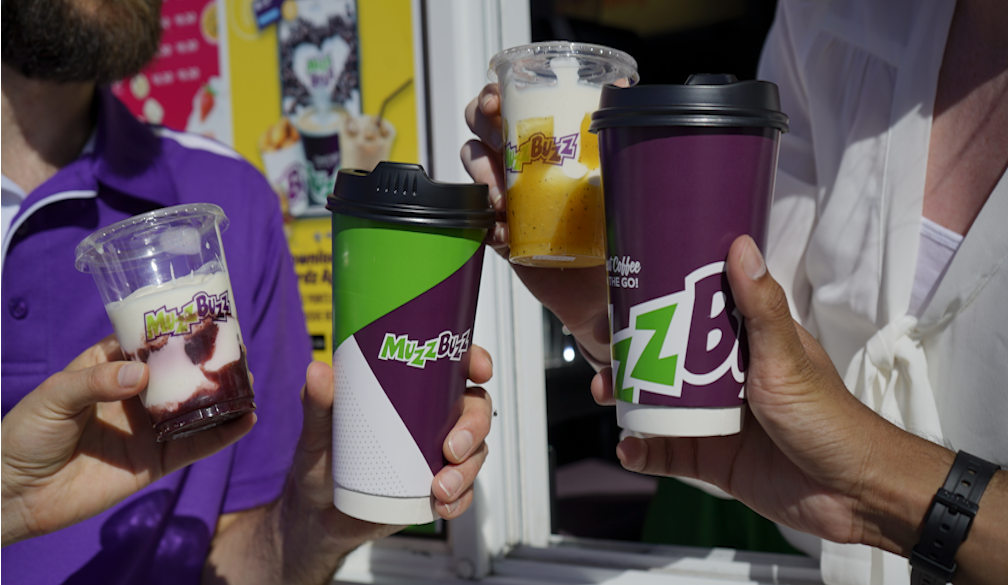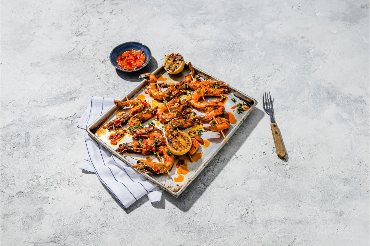The Real Estate Institutes respond to COVID-19 Vs Australian Property
- Written by Rowan Crosby

As the far-reaching impacts of COVID-19 and the ensuing economic shutdown continue to be felt, the Australian property industry is still grappling with what it all means.
Last month, Ripehouse Advisory released a Whitepaper; COVID-19 vs Australian Property reporting on the potential impact of the pandemic on real estate. Gathering the response of 146 of Australia’s leading industry professionals, the report identifies key suburbs to avoid and others that may represent 'safe havens'.
Across the board, the consensus has been that property, like most industries, will feel the impact of the unprecedented social distancing measures and economic slowdown - but some sectors of the market will be hit harder than others.
The Heads of the state’s Real Estate Industry bodies have all had their say in response to Ripehouse Advisory’s Whitepaper and most are on the same page, being cautiously optimistic.
Yield doesn’t always compensate for risk
President of the REIWA, Damian Collins felt that the holiday rental and short-stay market would be the one area that bore the brunt of COVID-19.
“Most of the analysts and myself felt the biggest pain would be in specialised residential property, such as short-stay or holiday rentals or serviced apartments,” he said.
“A lot of investors get sucked in by the higher yields, but your return from property is always yield and capital growth. But also you’ve got to price in risk as well. I understand a lot of people who are in Quest Hotels at the moment are getting zero payments and they will be for a long time.”
“It’s important to realise that for most investors, you’re far better off sticking with traditional properties in well-established cities that have got plenty of diverse industries that will provide a decent rental income but good prospects for capital growth. That’s because the extra yield doesn’t compensate for that extra risk.”
Mr Collins also agreed with the consensus that it will be the outer suburbs that will feel the impact the most.
“The outer areas have people who are generally in those industries that are most impacted by COVID-19, such as hospitality or retail, whether it be renting or owning. More so than your traditional inner ring suburbs.”
Despite the negative headlines, Mr Collins is still positive for the outlook of property in the coming months.
"I’m a lot more optimistic than some of the bank forecasts. With mortgage rates at 2.29% and with the banks not foreclosing anybody, that means that even if people lose their jobs people aren’t forced to sell.
“Prices might not go up in the next 6-12 months, but I think only a very small percentage of areas will actually fall in any real way," the REIWA President said.
“Once everyone realises things are back to normal and 92% of people still have their jobs, we’ll start to see a recovery.”
Worries for commercial real estate
President of REIV, Leah Calnan believes the projection that we’ll see some weakness in the commercial space is accurate.
“Some areas will obviously be affected more than others and clearly that will include commercial real estate. From day-to-day operations and a commercial leasing point of view certainly," she said.
“Also as the paper suggests, the short-term Airbnb and holiday accommodation will, unfortunately, be affected through COVID-19 and I think that will certainly be the case.”
Ms Calnan was very strong on the fact that investors shouldn’t be buying into the commentary surrounding big price reductions, which was one of the key takeaways from the Whitepaper.
“I think it’s dangerous for anyone to come out and make suggestions that there is going to be a dramatic price reduction. It’s still very early days and if we go back to 2017, there were a lot of property experts saying the property market was going to crash up to 40% and we didn’t see anything close to that.”
“What we do know is there is going to be a reduction in sales transactions during COVID-19, but that doesn’t necessarily mean that there is going to be price reduction," said the REIV President.
“Every area will face some challenges. In property management for example, rents might need to be adjusted in the short-term. But we must remember that prior to this, rental vacancy rates in Melbourne were at 2.3% and anything under 3% is deemed critical. So we need to remember that.”
Prices to be higher in 12 months
President of REINSW, Leanne Pilkington feels that despite some of the headlines that have been coming out, like most of the industry experts she believes that property will hold firm.
“I agreed with a lot of what was said in the paper, particularly around when property was going to be hit the most. No doubt we’ll see a short term negative impact on prices, but ultimately, in 12 months time, prices are going to be more than where we’re at now.”
“This is a crisis like no other and when we had the likes of the GFC, the end-point wasn’t certain. In this case, we do have an endpoint, but we don’t know how many businesses won’t come back from this,” she said.
“With interest rates at historical lows and the property market already recovering, I think it is likely that prices will continue to grow when we get on the other side.”
Leanne Pilkington also felt that there is some risk to property investors who might be forced to sell.
“I also think that investors are far more likely to be selling than owner occupiers.
“Some of our landlords have been negatively impacted by the stock market and nobody’s going to be selling their shares unless they really have to, however, some have been looking at offloading property to free up some cash.”
A reduction in activity
Interim General Manager of REISA, Andrew Shields says the Whitepaper results compare closely to what he has been seeing in South Australia, particularly in response to transaction volumes.
“Over 50% of our members were certainly seeing a 50% reduction in buyer and seller enquiry. So that impacts on what will happen in the market place. So clearly supply will be dramatically reduced in the coming months. However, there is still demand and activity.”
“We expect to keep seeing demand for properties that are well priced and well located. But there will be less supply, not no supply.”
Mr Shields expects there to be an impact on prices in South Australia, but it won’t be as pronounced as some have suggested.
“We’ve just come off two positive quarters in terms of sales, so while there might be a reduction, it’s hard to say what the fallout will be on the price side, " said the Interim GM.
“I tend to agree with the Whitepaper where it suggests there will be an impact on prices, but perhaps not as much as we have been hearing.”
A flood of rentals
REIT President Mandy Welling feels that the Ripehouse Whitepaper reflects the sentiment in Tasmania, however, there are some key differences.
“I think the general consensus of those interviewed are quite similar to mine with the exception of the areas which would be most impacted. I think the middle socio-economic locations in Tasmania may be adversely affected," said the REIT President.
“Many of our low socio-economic areas are Government owned and have longer term tenants. Many of our areas that would be considered mid-range are sought after by investors and first-time buyers. A considerable portion of these first-time buyers are in professions including tourism/retail/hospitality.”
Ms Welling believes that Tasmania might not see price big falls, but the rental market is a different story.
“In Tasmania, we were experiencing a dramatic housing shortage prior to COVID-19 and we are seeing few new properties entering the market. Albeit we will certainly have a smaller pool of buyers once this recedes I do not believe we will have a considerable amount of stock available.
“The rental market, on the other hand, is another story, with the addition (or flooding) of the market with AirBNB properties. The issue we are having in Tasmania with those properties is many of them are fully furnished. Even without the trauma of COVID-19, these types of properties have a small market place as we do not experience the considerable flow of short term professionals relocating to Tasmania for business and requiring furnished properties. This is really only a substantial market place with tourism," she said.
“I am just preparing our current quarterly report of which we have not noticed much of a change over the previous quarter but I am very confident next quarter will paint a very different story.”
Embracing prop tech
Antonia Mercorella, CEO of the REIQ thinks the Whitepaper reflects how the industry is feeling at the moment.
"The COVID-19 Vs Australian Property Survey provides for some great insights across the real estate industry, particularly at this time when faced with a ‘once-in-100 year’ crisis in which we have all had to readily adapt to within an extremely short amount of time and operate in extremely unique circumstances.”
Given the unprecedented measures the industry has been forced to adopt, Ms. Mercorella believes this could lead to more changes in the future.
“The REIQ anticipates a fundamental shift in the way real estate agents and staff operate, particularly digitally. This won’t just be witnessed from a consumer experience but from an administration perspective where most, if not all, processes will ultimately move to online platforms in the next 12 months."
“The industry has embraced ‘prop tech’ with the necessary speed required over the last few weeks, that there’s no stopping it now. And supporting this shift in technology will be an influx of new markets looking to Queensland as their new home. The key driver of course being affordability which will continue to be the State’s main drawcard backed by an enhanced quality of life and relaxed lifestyle," the REIQ CEO said.






















